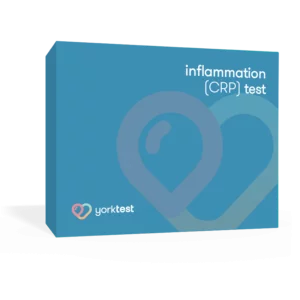- Wine allergy can affect anyone
- What is a wine allergy?
- How common is wine allergy?
- What are the symptoms of wine allergy?
- Wine allergy can effect anyone
- What is a wine allergy?
- How common is wine allergy?
- What are the symptoms of wine allergy?
- What is wine intolerance?
- Is there a wine intolerance test?
- What is a tannin allergy?
- How common is wine intolerance?
Wine allergy can affect anyone
A recent poll of UK wine drinkers by Wine Intelligence suggests that 44% of UK adults are regular wine drinkers. Whilst we are all familiar with the more common side effects of drinking wine, some may also suffer an allergic reaction.
What is a wine allergy?
A wine allergy is an IgE reaction which means symtoms would appear almost immediately. This is different to a wine intolerance, which is an IgG reaction where symptoms may take several days to appear.
A wine allergy can be caused by either red or white. There is no difference in the possible symptoms between a red wine allergy or a white wine allergy
How common is wine allergy?
Well there are many different ingredients and chemicals in wine that we can react to. True allergy to the alcohol in the wine itself is extremely rare, although a few cases of skin rash reactions have been recorded. More commonly, symptoms are caused by an intolerance or long term immune reaction to the food ingredients in the wine, such as yeast or the specific grape varieties, or reactions to chemicals in wine such as histamine or sulphites.
What are the symptoms of wine allergy?
Wine allergy symptoms, like any allergy, can be severe. These symptoms will resent almost immediately. Common examples of wine allergy symptoms include:
– Rashes
– Diarrheoa
– Vomiting
– Shortness of breath
– Stomach cramps
– Swelling in the mouth
Wine allergy can effect anyone
A recent poll of UK wine drinkers by Wine Intelligence suggests that 49% of UK adults are regular wine drinkers. Whilst we are all familiar with the more common side effects of drinking wine, some may also suffer an allergic reaction.
What is a wine allergy?
A wine allergy is an IgE reaction which means symtoms would appear almost immediately. This is different to a wine intolerance, which is an IgG reaction where symptoms may take several days to appear.
How common is wine allergy?
Well there are many different ingredients and chemicals in wine that we can react to. True allergy to the alcohol in the wine itself is extremely rare, although a few cases of skin rash reactions have been recorded. More commonly, symptoms are caused by an intolerance or long term immune reaction to the food ingredients in the wine, such as yeast or the specific grape varieties, or reactions to chemicals in wine such as histamine or sulphites.
What are the symptoms of wine allergy?
Wine allergy symptoms, like any allergy, can be severe. These symptoms will resent almost immediately. Common examples of wine allergy symptoms include:
– Rashes
– Diarrheoa
– Vomiting
– Shortness of breath
– Stomach cramps
– Swelling in the mouth
– Runny nose
– Racing heartbeat
The University of Mainz in Germany also found that 24% reported allergy and intolerance-like symptoms after drinking wine. Interestingly red wine seemed to produce more symptoms than white wine. The study didn’t, however, take into account many of the longer term symptoms of intolerances* such as frequent headaches, eczema, chronic fatigue, low mood and IBS. If these were added up as well, we would expect we would see a much higher percentage of sufferers.
What is wine intolerance?
Wine intolerance, or wine sensitivity, is an IgG reaction, and meaning that symptoms present far more slowly than those of a wine allergy. Furthermore, the wine intolerance symptoms are typically less severe, and may include IBS, bloating or diarrhea. Whilst wine intolerance symptoms are not life threatening, they can cause discomfort.
Is there a wine intolerance test?
YorkTest’s Premium Food Intolerance Test is a comprehensive intolerance test that includes over 200 food and drink ingredients including many common wine grapes. Our test covers many grapes which typically cause wine intolerance, including the following:
– Cabernet Sauvignon
– Chardonnay
– Concord
– Malbec
– Merlot
– Pinot Grigio
– Pinot Noir
– Red Zinfandel Mix
– Riesling
– Sauvignon Blanc
– Syrah/Shiraz
– White Zinfandel
What is a tannin allergy?
Wine contains tannins, which is a chemical compound called polyphenols, and which occurs naturally in grapes. Tannins can cause allergic reactions, although these are not common. A tannin allergy may also be caused by foods or drinks other than wine, as they also occur in common foods such as strawberries, chocolate and legumes. Tannin allergy symptoms are consistent with wider symptoms to wine allergy.
How common is wine intolerance?
Another survey, from online market researchers Www.OnePoll.Com, of 2,000 people aged between 18 and 65 looked at their symptoms after drinking alcoholic drinks (not just wine). According to this survey four out of 10 people complained of stomach cramps, bloating or diarrhoea, eight out of 10 complained of headaches, seven in 10 tiredness and four in 10 feel nauseous; all also common symptoms of allergy and intolerance reactions. The survey found that one in 10 people believe they’ve had an allergic reaction to an alcoholic beverage but just one in six admit they had checked out what ingredients were present in their drink. Remember that intolerance to a particular drink will not always show immediately, often taking a few hours to a few days to show up.
Intolerances often start with mild gut damage, such as that caused by a gastro-intestinal infection, or taking antibiotics (which kill off all the good bacteria). Alcohol also increases the permeability of the gut, which allows larger food molecules into the body which can trigger an immune reaction. This may explain the reactions of mildly food sensitive individuals who may not react to the wine ingredients alone but only when it is combined with alcohol. Most of us put symptoms after drinking down to a hangover, but often this doesn’t always reflect a true picture as intolerance to ingredients in drinks such as wine can cause similar, but often longer term symptoms. This recent research has shown that wine intolerance and wine allergy can affect a significant proportion of us. Maybe it’s time to find out exactly what you are reacting to, and/or change your tipple?
If you suffer an allergic reaction to wine you should seek medical assistance immediately.












